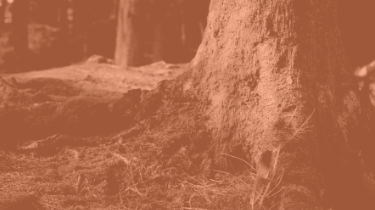Ecosystems for the Future Online Course

- Level: Introductory
- Time commitment: 2 hours per module (8 modules in total) – 16 hours total
- Learning product:Online course
- Sector: agriculture, infrastructure, architecture, natural resources
- Language:English
- Certificate available: completion certificate; microcredential programme in development
Introduction
This online course will bring into focus the practice of restoration of ecosystems at the local and regional level in British Columbia through a series of presentations delivered by faculty from the University of Victoria’s School of Environmental Studies, First Nations speakers and Elders, and professionals whose work intersects with ecology in diverse ways.
We start by rooting our introduction in Indigenous perspectives on how the local ecosystems are changing. We discuss basic principles and practices of ecological restoration on the ground. We then explore the complexity of British Columbia’s biodiversity, the basic drivers of change in ecosystems, and the challenges they present in different types of ecosystems. We look at how climate change models help us understand what the future scale of change might be, and we finish up by discussing how ecological restoration principles can apply to different disciplines.
Online learning will consist of a combination of asynchronous study units and some synchronous meetings to provide discussion and feedback.
The learning is supported by readings, videos and live, interactive online sessions. Participants are encouraged to share their own knowledge and expertise in group-based discussion forums.
The Ecosystems for the Futurecourse material is available using the links below for self-learning but if you wish to attend a facilitated online course find details here.
Institutional background and trainers
Ecosystems for the Future by Thomas Munson, University of Victoria, is licensed under CC BY 4.0This course is part of the Adaptation Learning Network: Inspiring Climate Action. This course is Creative Commons licensed and the content is free to use with attribution (for external links to resources, please review the rights and permission details).
This course is also offered as a facilitated online course by the University of Victoria. You can find registration information on the Adaptation Learning Network Portal.
Who would find this useful?
This course was designed for working professionals from a range of disciplinary and professional backgrounds particularlyengineers, city planners, agrobiologists, biologists, landscape architects and natural resources professionals.
Training Material
Unit 1: Introduction to the Course
Participants will take away an understanding of the First Nations role in ecological restoration, of ecosystem functioning, of ecosystem changes being experienced, and of practices of cultural and ecological restoration that can produce a positive impact in their fields of discipline.
Unit 2: First Nations Perspectives on Climate Change Impacts
After successfully completing this introductory unit, you will be able to:
- Recognize local First Nations cultural and ecological context on the Saanich Peninsula
- Relate to significance of First Nations relationship to their traditional territories and its plant and animal species
Unit 3: Principles and Objectives of Ecological Restoration
In this unit we will be listening to a presentation by Dave Polster, a plant ecologist with over 40 years of experience in vegetation studies, ecological restoration and invasive species management.Video attribution: “Let Nature Do the Work” is licensed under CC BY-NC-ND 4.0.
Unit 4: Ecological Complexity and Biodiversity in BC
In this unit we will be listening to a presentation by Dr. Brian Starzomski, of University of Victoria School of Environmental Studies.Video attribution: “biodiv RestoCourse Starzom2020V2 video” is licensed under CC BY-NC-ND 4.0.
Unit 5: Climate Change Models Now and in the Future
In this unit we will be listening to a presentation by Richard Hebda, who served as Curator (Botany and Earth History) at the Royal British Columbia Museum for 38 years and adjunct faculty at the University of Victoria for 33 years.Video attribution: “Hebda 2020 Dynamic Ecosystems compressed” is licensed under CC BY-NC-ND 4.0.
Unit 6: Drivers of Ecosystem Change
In this unit we will be listening to a presentation by Dr. Nancy Shackelford, Director of the Restoration of Natural Systems Programs and ES Faculty at UVic.Video attribution: “Drivers of Ecosystem Change” is licensed under CC BY-NC-ND 4.0.
Unit 7: Historic/Hybrid/ Novel Ecosystems Concepts
In this unit there is a presentation by Dr. Eric Higgs, faculty, and Sonia Voicescu, PhD Candidate, School of Environmental Studies, UVic. [Note: this presentation is unavailable in the Creative Commons licensed version of this course]iUnit 8: Applying Ecological Restoration Principles to Different Disciplines
n this unit we will be listening to a series of interviews with professionals working in the fields of planning, climate action, landscape planning and ethnobotany, who will discuss their relationships with the natural world and the application of ecological restoration to their professions. Thomas Munson Interviews with: Adriane Pollard, Planner, and Manager of Environmental Services, District of Saanich Judith Lyn Arney, Ecosystems Director, PEPÁḴEṈ HÁUTW̱ Foundation Bev Windjack, Landscape Architect, LADR Landscape Architects Chris Krasowski, Climate Change Specialist, BC Government, and volunteer with City of Victoria Parks.Video attribution: “Adriane Pollard v2” is licensed under CC BY-NC-ND 4.0.
Learning Outcomes
By the end of the course, you will be able to:
- Understand the local First Nations perspective on climate change impacts
- Understand the main principles and objectives of ecological restoration
- Discuss biodiversity in the local ecosystem
- Understand the changing climate situation in BC
- Predict what will happen with ecosystem change response
- Evaluate how ecosystems respond to change
- Recognize local examples of ecosystem types and how to restore them
- Identify how ecological restoration principles intersect with different disciplines
(0) Comments
There is no content